#i have so many feels about being treated as an animal for being disabled and mentally ill and all that by one's society
Text
Being released into the wild after a lifetime in captivity
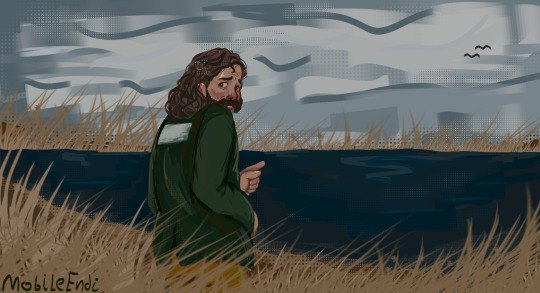
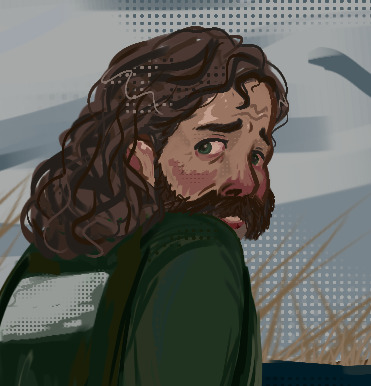
#i have so many feels about being treated as an animal for being disabled and mentally ill and all that by one's society#and harry just is that#its hard to explain so i drew this instead#being thrown into the world and just expected to function even though no one ever told you how#he's my babygirl#disco elysium#harry du bois#harrier du bois#de#my art#very quite proud of this one#why dont i use refrences more often...
1K notes
·
View notes
Text
so, you've heard shows be recommended because they had gay characters. you don't really know what they're actually about though, and don't know if they'd be something you'd be into and are worried about spoilers. here's spoiler free plot summaries of em!
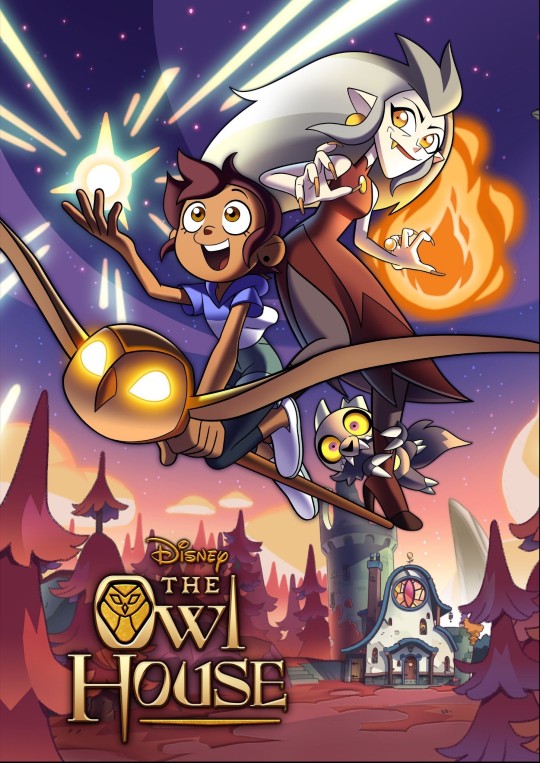
The Owl House
The Owl House starts out as a typical teenage girl goes into a fantasy realm story, but with a twist. Actions have consequences. The protagonist is a girl named Luz Noceda, who was being sent to a camp to make her behave normally by her mother after causing too much trouble at school. She ends up finding a place she's always dreamed of: a fantasy world. A world where everyone's so much weirder than she is. And she thinks, maybe if I don't belong out there, maybe people will like me here. Maybe I can be special here.
It's a story about found family, propaganda, erased history, living with disability, religious trauma, and neurodivergence. It's fundamentally a show about people who's brains work differently finding each other and making a family that treats them right. Definitely my favorite of the ones on this list. It's about people who've been oppressed being pissed about it and about finding yourself again after giving up on everyone around you for so long. It's basically a show about being a minority and trying to be understood and to understand yourself in the process. It's about growing up neurodivergent and how isolating it feels and figuring yourself out. It's about repairing broken relationships and parents who fuck up. And it's just. Such a love letter to anyone who was the weird kid in school. It's sad and heartbreaking and also so hopeful, and it's wonderful.
Content warnings: Abuse, Death, Grief, Animal Death, Suicidal thoughts, Vague suicide attempts, Depression, blink and you'll miss it s/h, body horror, religious trauma
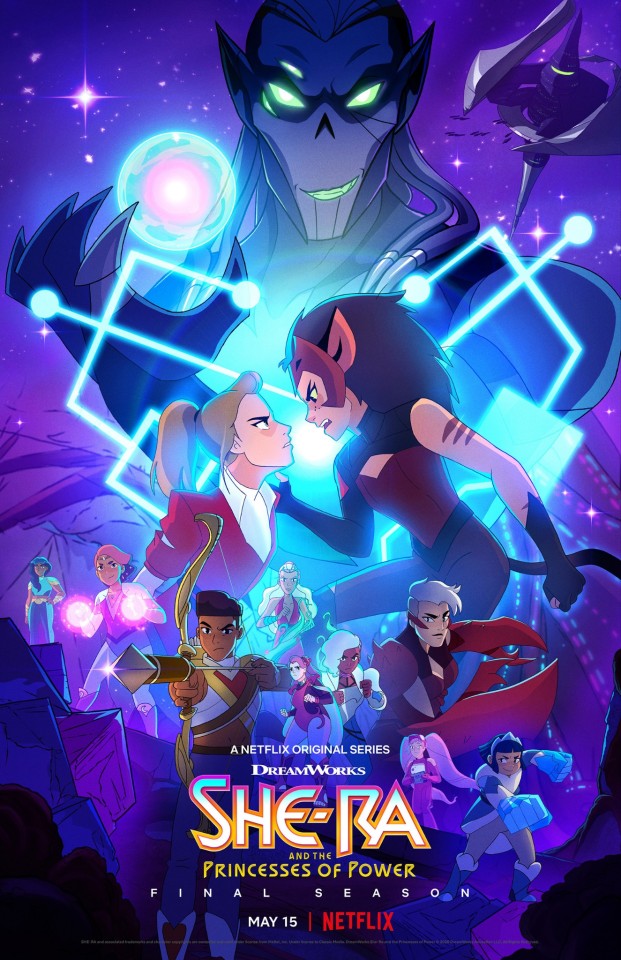
She Ra and the Princesses Of Power
Adora was raised in the Horde since she was a baby, being fed propaganda about how cruel the princesses were. After learning how the horde actually was, though, she defects. But there's one problem. Her best friend, Catra, stays behind. Adora finds a sword that can transform her into She Ra, and might be the key to figuring out who she really is, while Catra takes her place as force captain.
It's a story about abuse, at the end of the day. Adora and Catra were stuck in a golden child and scapegoat dynamic, despite how much they care about each other. This leads to them knowing everything about each other but not understanding it. There's a fundamental disconnect between them, because both of their traumas are completely different. They have complete misconceptions about each other. Even in their initial split, they both have completely different perceptions of what's going on and why the other is upset. It's not a story about magic princesses, it's about the cycle of abuse and what makes it so complicated. Does it have flaws? Yeah. But ultimately I really really enjoy it, and when it does something right it does something RIGHT. Get through season one, it starts kids show-y but it gets very good during later s1.
Content warnings: Abuse (obviously), body horror, gaslighting (and I mean actual gaslighting, not what the Internet thinks gaslighting is), suicide, depression, flashing lights and eyestrain during the finale
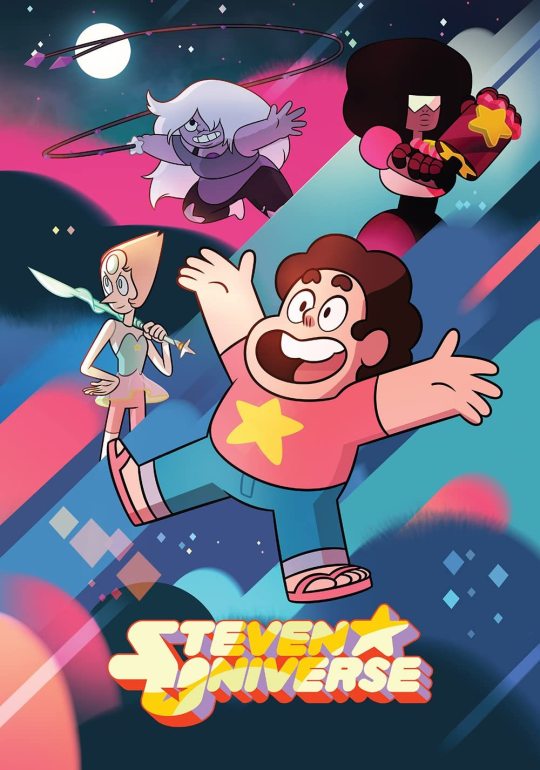
Steven Universe
Steven Universe is a sins of the father story. Steven is the son of the leader of the rebel group The Crystal Gems, who's name was Rose Quartz. He navigates the confusion of being half gem and half human, as well as trying to figure out the mess of the rebellion and what his mother left behind. He's constantly in her shadow, for better or for worse.
It's a story about grief. How it impacts relationships, how it taints history, how it impacts family. It has some definite flaws, but ultimately it's about very flawed people who have lost so many people in their life trying to cope with it. Trying to handle what they lost and trying to adjust to life without them. It's about how expectations fuck a kid up and about agency and just a show about complicated relationships in general, at the end of the day. Also, it has some FANTASTIC music.
Content warnings: Grief, Abuse, body horror, very creepy people I don't know how to tag, heavy allegories for homophobia

Nimona
Nimona is a story about a guy who gets framed for murder. His name is Ballister Boldheart, a commoner who hoped to become a knight. It seemed everyone was waiting to watch him fail, so it was no surprise when he was the immediate target. Heavily injured and away from the man he loves, he's left alone trying to figure out a way to prove his innocence- until a strange kid comes into his life. This kids name is Nimona, and while he is intent on proving his innocence, she gave up on being anything but a villain a long time ago.
It's about deconstructing the model minority myth, trans rage, propaganda, and with a healthy dose of "FUCK the police".
Content warnings: Heavy injury, on screen suicide attempt, flashing lights
feel free to add more shows! just remember to keep the summaries as spoiler free as you can and add content warnings!
#show recommendations#movie recommendation#the owl house#toh#owl house#steven universe#shera#she ra#spop#nimona#queer#gay#lesbian#bisexual#trans#transgender#queer shows
2K notes
·
View notes
Text
So I have only my two cents to give on the "curing disabilities in fantasy/sci-fi stories" trope, as just one disabled person among many disabled people, but here are my two cents nonetheless.
One defense of the trope is that it's simply a form of escapism, and moreover, a fantasy that disabled people themselves can quite reasonably find joy in — as a feel-good story, a break from all the pain of real life. Many — not all by a long shot, but many — of us would jump at the chance for a cure, after all, and it's not like we're not valid to do so. Lots of us take pride in being disabled, but nevertheless, sometimes it really fucking sucks.
The counterargument to the above is this: that this isn't a realistic trope, and that particularly in combination with the suffocating frequency that this trope is used, this becomes the opposite of a hopeful fantasy. When you have an incurable condition, and the only happy endings you see represented for people like you in fiction are inevitably only achieved once the characters stop being like you — that can be indescribably upsetting.
Disabled characters do not get happy endings while remaining disabled — and fiction is fiction and all, but I'm not going to pretend like this doesn't have gradual, accumulative real-life effects on the amount of effort people/society are willing to put into accessibility and acceptance, because of beliefs like "aren't you going to be cured someday anyway?" Or "isn't this disability just going to stop existing, someday? one way or another?"
I hope I don't have to explain how damaging it is to think the above way, or to imagine a future where disability doesn't exist. (Yes, even though disability is partially socially constructed. That's a load-bearing "partially".)
So, if you couldn't tell, I do generally relate a lot more to the harsher, more critical view of this trope — but I certainly don't want to judge actual disabled people for writing it either (and especially not people with progressive conditions), not when there is genuine catharsis and escapist joy that can be wrung from it. I obviously don't trust non-disabled folks with writing "cure" stories any further than I could throw them, due to a long fucking history of non-disabled people fucking it up — but also, no one should be forced to reveal personal details, let alone medical history, to justify their choice to write something.
This is the paradox that I am willing to come to terms with, by throwing up my hands and saying, "okay, so some of the time I sure don't like it, but it's technically none of my business."
That said: if you're non-disabled, or you're writing about a disability much different from your own (a physical disability when you're autistic, for example), and you want to write an escapist feel-good story featuring disabled characters: I also want to stress that "escapist themes" versus "no one's disability gets cured ever" is very much a false binary. You can have both.
I've never written a "curing a disability" story. But I've both written and enjoyed some extremely escapist, unashamedly hopeful stories revolving around disabled characters — and it's all about accommodation.
A story of any genre where society is more accepting of — and willing to collectively help care for — chronic illnesses and chronic pain? That's escapist, and if it's something that characters once fought tooth and nail for, it's pretty damn cathartic. A fantasy or sci-fi story where medicines are still required to treat a condition, but the medicines are more accessible, more effective, et cetera, may also be escapist depending on the context.
Fantasy service animals, high-tech service robots, magical or indistinguishable-from-magic mobility devices? They're all possibly escapist too. (Just note that a lot of disabled people may still maintain a personal preference for seeing the "real world" versions, and that's that's also perfectly reasonable. Remember that the gripe with the original trope has a lot to do with a lack of variety in representation, justified by arbitrary rules about how fantasy/sci-fi "should" look, and the goal should be not to replicate that.)
So, in conclusion: if you find yourself writing a disabled character, and want to give them a happy ending, I urge you not to jump to "their disability is cured now" without at least thinking through the alternatives. Do your research regardless, and accept that disabled people will likely have a wide range of opinions on whatever you decide to go with — but accept that disabilities themselves are varied, and should not inherently have to consign either characters or real human beings to tragic lives by their mere existence.
#disability#ableism#long post#honestly i could tag toh here but i won't#(especially because the ableism in that fandom has calmed down since the peak in s2a - at least as far as i've observed)
88 notes
·
View notes
Text
Why The Witch From Mercury is Important to Me
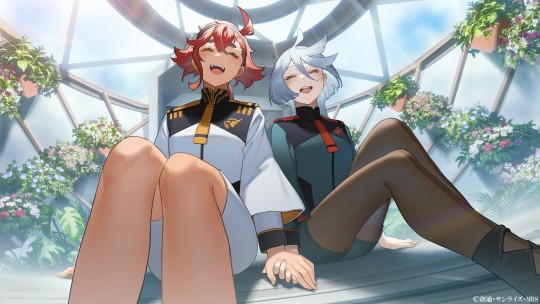
This will be a long, somewhat rambling and mostly personal thread. It's not about the show's quality or any issues I had about it (and YES, the show is flawed and has issues), but about why G-Witch's characters and themes were important to me and I think many others. Most of this I've already shared to a degree, but I wanted to expand my original thoughts, and put them all into one post.
I've been a Gundam fan for over 20 years, I got into the series with Wing on Toonami and have watched the vast majority of the animated series. As a woman, I longed for the day Gundam would have a female main character in the spotlight of a major show, but honestly at some point I'd given up on it. I just thought that if they hadn't done it by now, they never would.
Then, last March, they released this short 30 second trailer revealing The Witch From Mercury, and showing off Suletta and Aerial, and I was ecstatic! Finally, a female MC in a Gundam series, I was so excited for a new Gundam series for the first time since 00! I watched that short clip countless times over the months in anticipation of the series airing, I even grew addicted to the little song that plays during it.
youtube
Over time, the characters and key art were revealed and I saw some people float the idea that maybe Suletta and Miorine would be love interests. I didn't pay it any mind at the time. I was sure they'd milk their relationship for bait along the way, but there was no way they'd commit to Gundam's first female MC being gay. Even after the first episode aired I was still skeptical: There was the bait I was expecting, they're not seriously going to go through with it though.


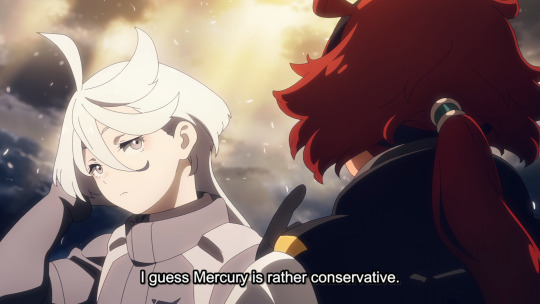
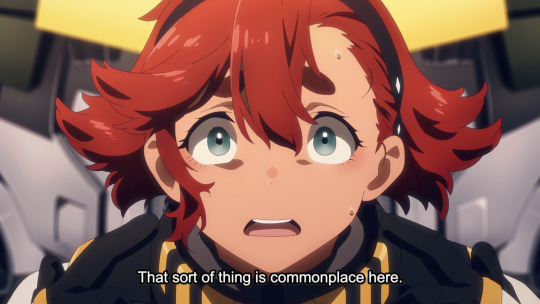
And here we are, almost 10 months after G-Witch started airing, and Suletta & Miorine are married. It not only wasn't bait, but they committed to it in a way I never would have imagined coming from a franchise I loved like Gundam. It was done with care and respect for the characters, it didn't feel like it was exploitative or added just for fanservice, but was a very real relationship.
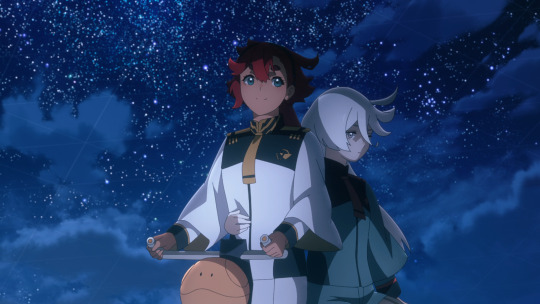
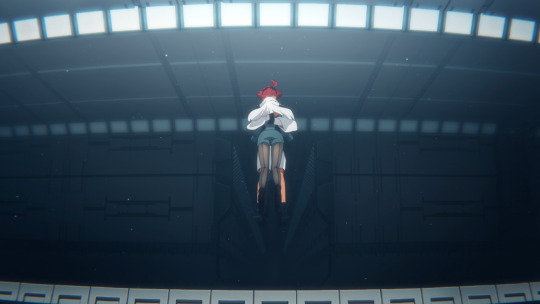
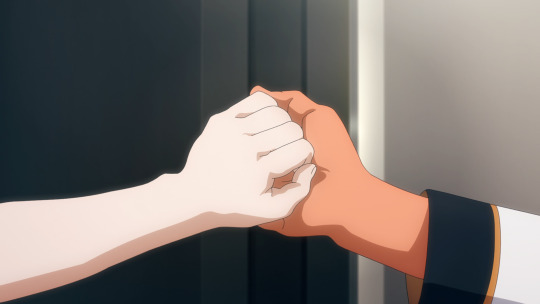
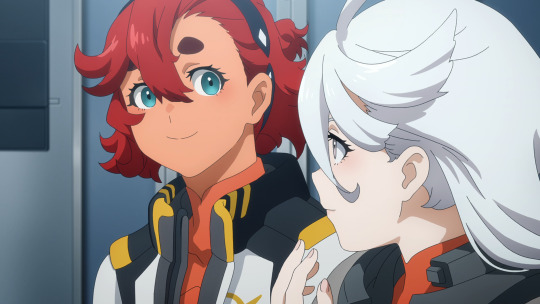
I'll admit, I was initially among those disappointed we didn't see a kiss or the wedding at the end, but my greatest fear was the ending would be as ambiguous as possible, or even worse, walk back what we'd seen, so as not to offend people. Instead we got the sister-in-law line, the matching wedding rings, how close they were and they way they looked at each other with love and talking about going home together. We didn't see them kiss or see the wedding, but we got to see them married, and I think that's incredible.


As a gay woman, and a Gundam fan of over 20 years, Suletta is an immensely important character to me. Suletta and Miorine's relationship, and it being a central focus of the story, is immensely important to me. They're things I dreamed of having in Gundam, but never really thought would ever happen. I've been so happy about them for a long time now, but these last two days I've been so unbelievably happy that I was given their story. I love them so much and I'm never going to forget these two.

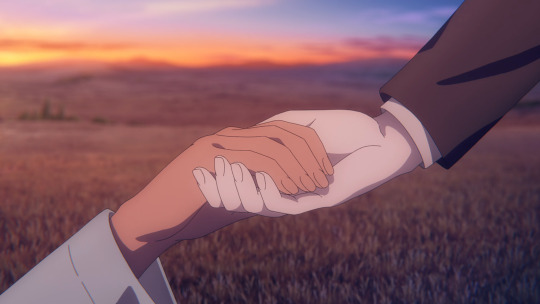
And this ties into why I think G-Witch has been important to so many people, regardless of how they feel about it's quality, because of it's representation and themes. Suletta, the main character of the show, is a queer, neurodivergent, disabled woman of color. She was well written, and she got to have a happy ending married to the woman she loves, where she's thriving and happy despite her mobility. She's not treated with pity or remorse, and she's still pursuing her dreams of making a school.
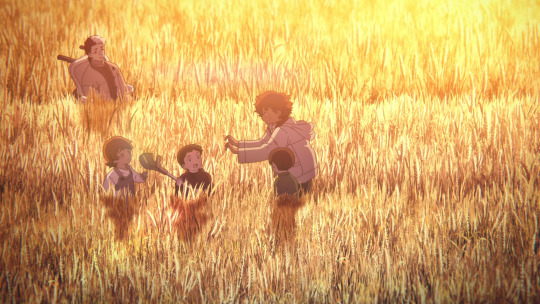
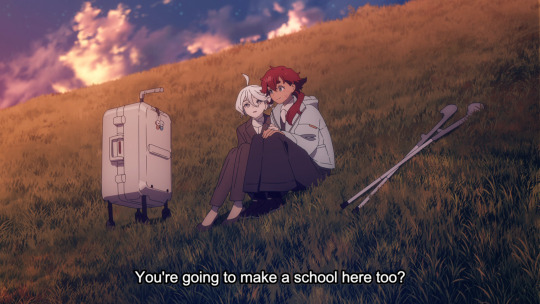
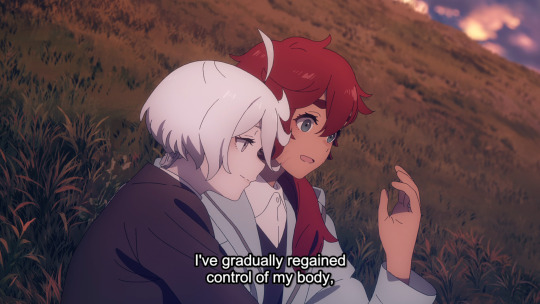
And not just Suletta, there were so many characters belonging to different minority groups that got strong representation and happy, satisfying endings. If you're a woman, if you're queer, if you're a POC, if you're any sort of ND, if you're disabled, The Witch From Mercury not only gave you good representation, but also said you're deserving of love, empathy and happiness.
With regard to it's themes, I absolutely love how G-Witch stressed love, empathy, compassion, acceptance and forgiveness over hate, vengeance, punishment and karma. Suletta and Miorine made many mistakes during their journey that they could never take back, but they accepted each other, including their mistakes, and resolved to move on together and makes amends for them if possible. Suletta never got mad at Miorine, Prospera or Eri for the things they did to her and she never blamed them, all she did was understand and accept why they did the things they did, and move forward with her love for them. She accepts the people she loves, mistakes and all, because of her unrelenting love and compassion for them.
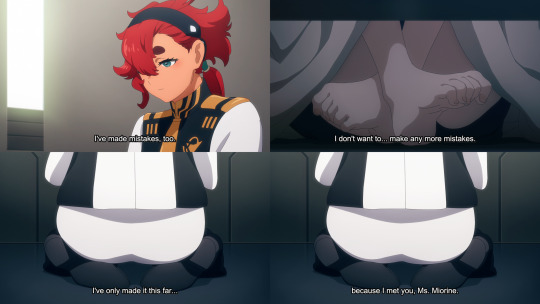
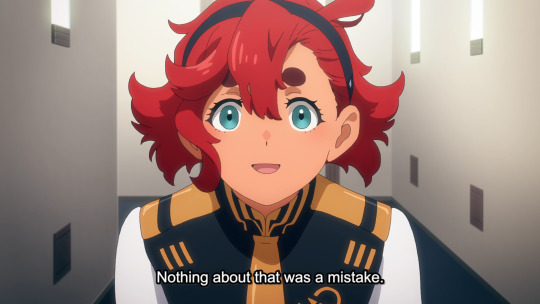
Even Prospera, the main antagonist, ultimately rejected revenge for the sake of saving her daughter. She was a less than stellar parent to Suletta, and her actions lead to a heavy death toll, but ultimately Suletta accepted her and her actions to save Eri. And rather than go for an easy karmic death, she was allowed to have a happy ending: Eri was saved, and she's living a peaceful life with her family. A life that was robbed from her 24 years prior.
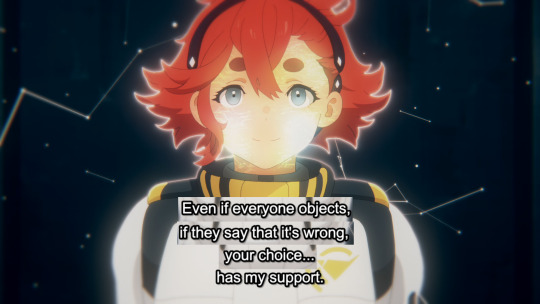
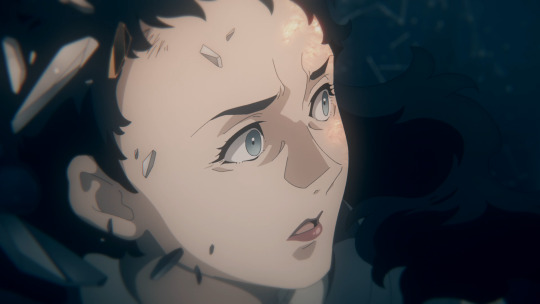


And ultimately, those themes are why we had an ending where literally no one died, and nearly every character got to have a happy ending. Gundam has always said that violence is bad, but The Witch From Mercury was the first to say "Alright, then we'll solve the problem without violence." We got a big magic spell that was a Gundam Pride Parade in space, and combined with Miorine's actions, events were resolved peacefully.

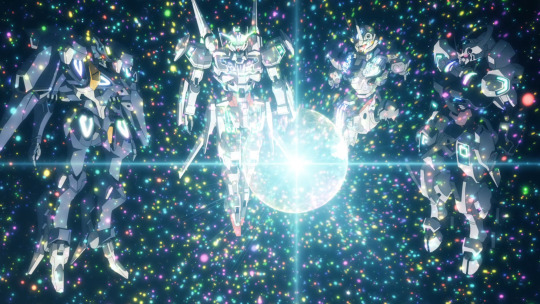
That's why G-Witch is important to me. It gave me and many others representation in ways you almost never get from a major franchise like Gundam, and without feeling like it was doing it to just check boxes off on some executive's diversity list. It stressed themes of love, empathy and acceptance and rejected hate, revenge, karma and even death. And I think that's incredibly important in this day and age. Representation Matters. Love Matters.
I've been very emotional over this show the last two days because I've been loving it for a while now, and while I'm sad to see it end, I'm so grateful that it happened, flaws and all. I've been crying on and off since the last episode ended and I've had trouble sleeping, but I've been so unbelievably happy over what this one show did and how much it's meant to me. The characters may not be real, but the happiness Suletta & Miorine have brought me is very much real.
For me; Suletta, Miorine, and The Witch From Mercury were truly a blessing.
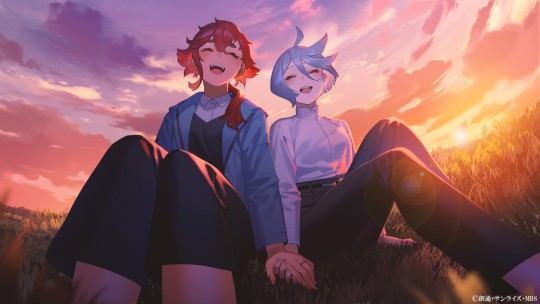
#gundam the witch from mercury#g witch#the witch from mercury#sulemio#suletta mercury#miorine rembran#Youtube
293 notes
·
View notes
Note
Hello, would you like to expand on the DID being treated similarly to Autism and ADHD by tiktok and tumblr?
Hi this is already getting long and I wanna post this as soon as possible so people who want to see it will see it. This is written on like 3 hours of sleep after a 8 hour shift and it took me 3 HOURS because I am so fucking out of it ask for clarification before getting upset if something is wrong.
I also want to preface this with the fact I am an advocate for healthy multiplicity. I’ve written essays for classes on non monogamy and DID. I’ve written about how identifying as separate but whole has been the best way to heal for ME. I am in no way saying that the way professionals talk about us is a complete picture. Our history is important and self advocacy is important and I think both disordered and non disordered advocacy should be taken seriously.
In the context of the disorder of DID, which is characterized specifically by distress and impairment, talking about it as a disorder is really fucking important. If you’re interested in the history of non disordered systems Sai’s card is absolutely incredible and I really really think it’s important to read. This is not a “syscourse” post or whatever, this all existed before the internet. I feel like discoursing over wether what real people experience is real is stupid because you’re never going to get into their brain.
Much of our history is self recorded because professionals for so long treated us like we were unable to understand our situation and unable to advocate for ourselves. All of these are reputable and sourced with great care by someone I trust.
https://plural.neocities.org
Alright preface over or whatever uh. Here we go.
While the DID community is much smaller than the ADHD/Autistic community, the issue of “well, I can do that, why can’t you?” is very present in a LOT of spaces. There are many similarities in how our “weirdnesses” is perceived outwardly by society. Some things are very very similar such as us being “off putting” and a lot of us being disabled to the point where we are unable to work a job. So, so much is similar in how society views us because there are so many crossover symptoms. But in terms of different experiences I’ve had people say it’s weird that I seem to switch between “emotional states” so quickly, that it’s weird how my voice changes pitch and my stims are different, that its “weird” when I switch to certain alters (my ex said this to his face btw) because they act so differently from me, I often feel the discomfort from certain friends when an alter introduces themselves with their own name. Some of these were said by systems, too!
We find it difficult to identify switches and tell who is fronting, sometimes we can’t tell until I (the host) am back in the front and things are disorienting. There is a massive push to CONSTANTLY be able to identify who’s fronting to other people.
I’ve noticed that a lot of what I experience isn’t in line with what people talk about on tumblr and TikTok and I struggled with that for awhile. Despite having the closest thing I can have to a diagnosis at this point, and doing what I can to read the literature. I do not know who is fronting if it is not me most of the time and identifying who can actually put a lot of strain on us. Sometimes we are distinct enough to tell, but not always. Many people I know also experience this.
Tools like pluralkit and simplyplural are great, but I’ve heard so many stories of singlets and even other systems feeling “lied to” when someone doesn’t identify who is fronting. For a very very long time we felt a lot of pressure to constantly be able to identify who is in the front. This is a symptom that is kinda supposed to happen though, you are dissociating from yourself.
I also think a lot of other systems find littles, animals alters, and fictives/factives cringe/weird and feel very self righteous in bullying them because of it especially if they are “normal” systems.
Littles are “weird” because it’s a child alter in a usually adult body. It’s “weird” that an adult is acting like a kid. DID is a dissociative disorder with the cause being linked to childhood trauma. An alter may form as a child as a result of said trauma. Animal alters are “weird” because it is abnormal to see people acting like animals and the (often) non speaking aspect of this isn’t taken seriously. Again, DID is linked to childhood abuse, if a child with DID was treated like an animal by their abusers they are probably going to form an animal alter.
Fictives and factives are more complex because it’s so often used as an indicator that people are faking because it’s “weird”. This is silly. I’m just going to repost something I’ve already wrote on it because I think explaining it again would make me loose my actual fucking mind.
“Things like “if I were this character I wouldn’t be in this situation” and “this character would take care of me, they wouldn’t hurt me” and “if I was this character I would be strong enough to survive” are all things I’ve thought of as probable reasons and I’ve heard similar from others too!
Also, it is a LOT easier to make something from a blueprint/template than create something entirely new in anything. I don’t see why that would be different in the brain especially if one is going through a lot already. Normal alters pull from our experiences already so it’s kinda just a more extreme version of that imo!”
And what you need to understand about living with DID is that it’s fucking weird. It will be weird. Systems aren’t any more “normal” if they don’t experience weird symptoms.
I think the “tee hee alters in my head” talk is SOMETIMES overwhelming discussions of what it is like to live day to day with the disorder. There are days when there is very little internal communication within us, and many people I know do not have any internal communication at all.
The idea that alters are separate people and not ‘parts of a whole’ is something I’ve seen people very defensive on. while I like. Get this sentiment, and it can be very very invalidating to be told this. But it’s not really consistent with the literature and if you want to treat your plurality like DID you have to at least consider parts language IMO. Modern papers in my experience do affirm the individual identities of alters while still using parts language. This is very good in my opinion because it not only validates the lived experiences of someone with DID but also stays on the track of treating the disorder in one way or another.
There are severe and dangerous symptoms related to DID that are NOT talked about enough. There are comorbidities that are not talked about at all that I like, only found out about from scouring papers. But I do not want to get into that until I have at least. A week to recover from finals dear FUCK.
#this crashed my app the first few times I tried to post it btw#Ahg#I hope people understand my intentions and the point is clear
36 notes
·
View notes
Note
Hey there! Before I begin, I totally understand if you aren't comfortable with answering questions about this. Feel free to delete this ask.
Would you mind describing the treatment of animals you saw when you were in Mennonite communities? I've heard Amish and Mennonite communities treat them more like tools than living creatures.....
Yes, Mennonites and Amish largely treat their animals as tools and a means to an end rather than like living creatures deserving of their own respect. Understand that this is very much hard-coded into the religion and culture itself, so it is a difficult mindset to combat. Even Mennonite-adjacent communities often treat their animals in a similar manner, even if they say that they don't like that type of ownership, because of the same.
In the Christian Bible, there are a lot of verses about man having dominion over the earth and nature existing to do two things: worship God and serve Man. And Anabaptists in general believe that the best way to worship God is through hard manual physical labor and rejecting any and all paths that make this labor easy. It's why the Amish don't do electricity, for a rather extreme example, but it's also why many of these communities seem addicted to the ideals of "work" and "discipline" being the way to a Godly life.
So... if animals exist to serve Man and worship God, and the best way to worship God is through hard manual labor and rigid discipline (read: punishment) for anyone who steps out of line, it follows suit that the animals are not treated particularly kindly.
Don't get me wrong. These communities are also filled with horrific human rights violations. From child labor to forced marriage and impregnation to abandonment of the elderly and disabled to rampant domestic and sexual abuse to denial of education and medicine... this is not just an animal problem. I know I'm running an animal blog, but it's really important that if I talk about the way they treat their animals, I also have to talk about the way they treat the women, the children, the elderly, the disabled, and anyone who dares think outside of their strict rules. The care for the animals is just a symptom of the same problem.
It is my experience that the Amish are worse about it than the Mennonites, but they are also sort of cut from the same cloth so various communities of either can really vary widely. Animals are expendable. They serve their purpose and then they die and the owners get a new one. Dogs, cats, horses, livestock, doesn't matter. Most of these animals are not pets and, even if they are, they are not pets in the same way that my dogs are pets. If they get sick, letting them die or killing them outright is usually the path taken instead of medicine. If medicine is used, it's what can be purchased from a trip to the local farm store, not actual doctors and prescriptions.
Unfortunately, pretty much every attempt to fix this problem has been met with "it's my religion" and thus it continues to be an issue. Again, I have to stress, this is a religious problem, there are very specific verses they are using to justify this. It also does not help that their religion teaches that "the world" (anyone outside of their local church community) will try to lead them astray by telling them their religion and religious practices are morally wrong, and so pretty much any "hey maybe don't work the horses on the plow until they literally fall over dead" or "hey maybe breeding hundreds of dogs per year with no vet care or oversight is not the nicest way to do this" is met with "THE DEVIL is trying to tell me THE WAY I SERVE GOD is WRONG, clearly this is an attack directly on my soul" and not like. "Maybe you are right and I should be nicer to my animals and not work them to death and provide vet care when they're sick and injured"
This is why I call both Amish and Mennonites cultists. You have to have experienced the religion and culture firsthand to understand how this all hooks together. It's not so simple as just improving the law because these communities believe they are not bound by the law in the first place.
91 notes
·
View notes
Note
I’m not surprised by the most popular groups (though as a l/n fan it does feel discouraging sometimes asdfghjl). But do you know the most popular characters for each unit and maybe why they are the most popular 🧐
thanks to elongated muskrat I can’t check any of the old stats accounts so this is from memory.
I believe the most popular character in Leo/need is Saki. I think part of it is the gyaru/genki girl personality, like she’s very fun and that usually appeals to a lot of people. Also she’s very popular with people who are disabled/chronically ill for obvious reasons. And like all the Tenma sibs (Incl Toya) are pretty popular, and specifically Tsukasa so I think she gets a bit of a boost from that.
More More Jump I actually am not sure. All I know is they used to consistently show up at the bottom on title stats alongside MEIKO and Honami. I think Shizuku was usually highest (this is for JP). Tbh from observation I’d say she’s probably the most popular MMJ girl in EN fandom as well. I think her looks might play a part in it I can’t lie but her voice and character arc probably help as well.
I think the most popular from VBS is Toya but again stats showed that he, Akito and Kohane are all pretty popular on JP and consistently showed up pretty close to each other (An is the least popular from VBS by a noticeable margin rip An 6ever in our hearts). Again like I said all the Tenma sibs are popular but I think his voice (on top of the fact that I’m fairly certain that itoken is one of the bigger names among the cast) and his “appears cool but is actually very soft” character archetype make him quite popular.
Tsukasa is the most popular character in the game no question on both sides of the fandom. He’s got a lot of appeal so like it’s totally understandable: his arc in the main story is a pretty solid “starts out as a jerk ends up being a nice person” kinda arc, he’s also the onii-chan character and the comic relief character. Seriously I think a large part of it is just because the game is very aware of the fact that he’s their weirdguy and treat him as such (it’s why i post so many facts about him because there’s so much stupid trivia dropped about him compared to everyone else; he runs on rule of funny 50% of the time).
N25 I think is the main one with clear different favourites between EN and JP. Mizuki is the most popular one on EN. Definitely connected to their trans swag bc a lot of fans connect to that (prsk has a largely queer fanbase on EN side). Also they’re pretty energetic and fun but also depressed and have a compelling backstory that again a lot of people can relate to. They’re very popular on JP as well just not the most popular.
For JP the most popular Niigo girl is Kanade. She’s like up there with Tsukasa on JP for most popular character. I think the appeal comes from her kindness and determination to save people despite her own trauma and she’s quite cute in an unconventional way (hikikomori) as well. I think there’s some boost from tomoriru as well being another bigger name for the cast. She voices for Revstar and voiced for Love Live Nijigasaki when the game launched, as well as some anime, and has a good following so that might be a contributing factor in her popularity.
#i hope i interpreted this right. if you were asking for evidence of why they’re popular just send me another ask lol#mod talks#asks
84 notes
·
View notes
Text
Big sadpost
I dont feel guilty about not being in the labour force as such. A strong employment ethic is a shameful display of class cuckoldry. And I make my living off of, essentially, gifts—not investment and ownership. And fwiw i think those gifts are sourced about as ethically as i am likely to find anywhere
Its been years and years since ive had a special interest
No, i feel guilty bc ive been given this tremendous gift, years and years free of toil, and spent it on... whzt? Ive done some activism ig, helped some friends in need. But in honesty thsts taken precious little of my time comparatively. Researched and produced intellectually or creatively stimulating work,? I mean, a little, and im proud of it. But much much less than my peers and i did in grad school. Focused on myself and navel gazing self improvement? My deteriorating health speaks to thzt. Hedonistic promiscuity? Ehh for a bit but i mostly finished up with that a few years back. Decadent consoomerism? Not fucking even! I play a couple of video games about as much as their mild-to-moderate fans, i barely can manage even occasionally to bring myself to read crappy comics and watch crappy anime. Blog? I mean, some. But a Serious Blogger or even Social Media Personality or keen observer of the vibesphere i am not. For the most part my time is just... blank. I have nothing to do... and i can't even do that!!
Eta: "oh yr spending the time on socials just browsing" yea prolly but this is treating symptoms, when i deliberately cut socials i just stare at walls and shit. Tumblr scrolling isnt an addiction its filling a void of mindless lazing
And the temptation is to say "yea im disabled" and i mean, yea probably. Not utterly incapacitatingly but when i was working my school basically did in so many words tell me i was clearly mentally disturbed enough to exculpate me for my rank unprofessionalism. But absent employment/schooling the worst triggers for those disturbances are gone, so you would figure it would free up my time. And yet, instead...
I am overwhelmed with both the vastness and worth of my life and this disorienting retrospection where i can clearly see myself having used it for... nothing. Just absolutely fuckall. Like winning the lottery and 3yrs later opening your bank account to see yr balance in the negatives without any recollection of any purchases
And what's even stranger is i have so much less of that suicidal zeal i once did too. As i look over this tenuous and ill spent life i cant summon up any of that fanatical desire to lay it down for The Cause. More than ever i cling greedily to the sughts and sounds and feelings and connections abd capacities of life, my life. It makes no sense!
35 notes
·
View notes
Text
partner @coulson-is-an-avenger and i were yelling about this but it is continually absolutely insane to me that melville just casually drops in one line that ahab was forcibly put into a strait-jacket after losing his leg because he was like, in pain and traumatized and acting like it?

(ALT)
like. imagine already participating in the extremely physically and mentally taxing & traumatizing endeavor that is 19th century whaling. imagine being face to face with the largest creature in the world with nothing more than a tiny broken boat you’re clinging to and a six inch knife. imagine it tearing your leg off like “a mower [through] a blade of grass” (ch41). and all the trauma and pain that entails. and then imagine your crew physically restraining you and strait-jacketing you for months for the crime of being traumatized and in pain about it. he’s not even a threat right now, mind you -- they’re lashing him in his own bed. he’s not even walking again yet. like good god this treatment afterward must’ve been more traumatizing than the fucking whale itself!!!
like. hgdshgsahfdahsgh. i and many others have talked before abt how ahab’s anger and trauma with the world comes from a place of truth -- the world he lives in is legitimately awful and it is never more evident than in how it treats him and people like him. and he can’t fight all of that -- he cannot fight the system or the industry or ableism or the god or the shipowners but at least he can fight that fucking whale.
good god above. no wonder he can’t sleep at night. no wonder he wakes up in terrors and panics. no wonder he’s so restless. no wonder he doesn’t like staying below deck. no wonder he feels god and the world and all its men are against him. no wonder he relates so much to pip, a traumatized boy who, when speaking his trauma, also gets branded as mad/insane by the rest of the crew. no wonder he’s putting on such a front of control and power and strength. no wonder he never speaks to anyone about his pain instead of going on this horrific vengeance quest!! because the last time he did he was treated like a literal animal! locked up and straitjacketed! because the way this world treats disabled and/or mentally ill people is genuinely horrific! because he’s under a constant level of scrutiny from his crew, his officers, the shipowners to prove that he is well enough to do his job and turn them all a profit!
AAAAAAAAAAAAAA
#mobydick#moby dick#whale weekly#ahab#captain ahab#whale weekly spoilers#sort of -- just the thing about pip is kind of spoilers i think#pip#melville#herman melville#classic lit#classic literature#quasartalks#i am so. i am so sad about him always.#melville why are you so obsessed with dropping the most devastating facts about ahab and just never elaborating on them#it's like dropping the fact that ahab was an orphan and then never elaborating on that#how is that the least tragic thing about him#putting this man in therapy.#kissing him also
82 notes
·
View notes
Text
Country roads, take me home
To the place I belong
My name is Nik, and I have never had a home. Now, before you panic or accuse me of making up stories, I have never been without a roof over my head. But a home is more than that. It’s somewhere you feel safe, somewhere you have family by blood or by choice and a community that you trust and that supports you.
In all my 35 years, I’ve never known what that feels like. But I want to, and that’s what the GoFundMe I've linked below is for.
I spent most of my life raised in a fundamentalist Christianity-based micro-cult in Oklahoma, born to an abusive mother and a chronically ill father. I was homeschooled, isolated, abused and denied medical care, and never taught many of the life skills I desperately needed in order to make it on my own.
I’m autistic and receive social security on account of being diagnosed before the age of 22, who has survived my father passing on from his own debilitating illness in 2014. I think my mother’s goal was to keep me at home and keep profiting off of my disability income for the rest of my life. Mine, not hers, because the stress and misery of it all was killing me, and if my mental health didn’t lead to me taking drastic actions, the lack of medical care I was receiving would have led to my death within a few years anyway.
Then, in November of 2021, I managed to escape. Escape is no exaggeration here, as it involved sneaking out of an isolated farm in broad daylight with a very high chance of being intercepted and stopped despite my age and status as an adult with full legal rights. I am not and have never been under a conservatorship or guardianship past the age of 18 - I was kept at home purely through abuse tactics and gaslighting. With the help of friends, I made it to the Pacific Northwest where I was supposed to be able to start over and build my life at last.
…Yeah, that? That didn’t work.
I stayed in Washington for about a year, but my roommate and I had incompatible trauma, so I moved to Portland where a larger group of my friends were and where I should have had a support network to help me as I recovered and started treating my trauma properly with medication and therapy.
…That support network ditched me completely. Everyone has their own troubles, their own struggles, but when you’re in a city and trying to recover from abuse, and you’re alone because the people you were counting on never even talk to you, let alone want to spend time with you because they have better things to be doing, well. You can’t make a home where you aren’t wanted.
And the thing is, there are a lot of things about where I live now that don’t fit who I am. Portland is too much of a big city for me. There aren’t enough animals, and the wrong kind of animals when there are any. The smells and the sounds are all wrong, and I stick out like a sore thumb with all of the cultural differences between the PNW and Oklahoma.
So for my mental health and continued recovery, I’m going to move to live closer to the people I know care about me– in this case, one of my oldest friends, who’s put up with my shenaniganry for close to 15 years now–but I’m trying to do that on a very limited budget.
My only income is, as I said, social security disability, and right now almost ¾ of that is going to my rent alone. That means I can’t save enough to move, and on top of that, I’m trying to move to West Virginia.
I’ve seen pictures of the area and it reminds me of the one spot in Oklahoma I ever felt happy, the Ouchitas, but somehow… More. Some of my ancestors used to live in the Appalachians; not West Virginia specifically, but the mountains, and when I saw a photo of that friend’s hometown I almost burst into tears because it was like looking at a place I hadn’t been to in years and needed desperately to get back to.
I never knew you could be homesick for a place you’ve never seen, but I am, and everything in me is crying out that I need to get there. Something deep inside me, something older than the trees, older than the concrete and steel currently surrounding me where I live right now says that when I do, I will finally have found my way to the home that I’ve been looking for all of my life.
Will you help me get there?
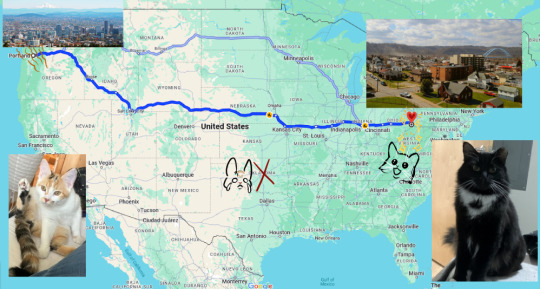
#long post#gofundme#god i'm so ready for the nightmare that has been my life to turn into something positive#we don't use deadnames here folks#gofundmecampaign#gofundmedonations#gofundmehelp#fundraising#fundraiser#any help would be appreciated
15 notes
·
View notes
Note
hi!! could you explain what alterhuman is and what it means to you? it seemed really interesting
i think my brain is still very used to having to defend my humanity as a multiply disabled trans person so tearing away the concept of being human is very surprising/confusing maybe!
the folks at alt-h have a much more comprehensive description/set of operational definitions than me, but personally, i view alterhumanity as an umbrella term that encompasses many forms of non-/anti-/and dis-identification with the category of human. i've seen plural/multiple systems, otherkin, furry, and/or neoidentity users (such as voidpunks, whose reclamation of "void" functions as a reclamation of dehumanization/abjection by oppressive systems) identifying under the umbrella.
i've never felt human, and felt more proximate to an android or similar since i learned about them. i don't really feel "whole" or "complete" or "individual" in a way that aligns with both pre- and post-enlightenment mythologies of exceptionalized human personhood. never really felt inclined to id with being otherkin or similar, i'm not sure why. i don't think i really felt like i belonged to / in / with otherkin communities when i first encountered them. i also don't really feel... "other"? in the sense that my disconnection from my physical form and my orientation against the species i was assigned (as it were) only seemed tangentially connected. this is also true for the relationship between my (lack of) gender and my body.
now that i write that, i think that being genderless + being nonhuman -- that somewhat paradoxical identification w/ void that i come to understand these days as voidpunk -- are the most related parts of all of this.
as i engage more seriously with critical alterhuman scholarship, i am coming to find meaning in an explicit personal-political identification with the term, much as i do with the term queer. less because i immediately saw it and was like whoa, that's the essence of "me" (i don't believe in essences). more because i care about the political project of unseating "humanity" from its status of epistemic/material/spiritual supremacy, as it is bound up in white, cisheteropatriarchal, abled, sane supremacy, too. in short, "alterhuman" is a nice proxy (and, it seems, really vibrant and varied community!) for talking about my longtime disidentification w/ the human label, and my political orientation against it. (again, like queer!)
Some more ramblings on humanity, personhood, and oppression below the cut.
for me personally, again, i've never felt like a human being and as a result have never felt the declaration of "i am a human" to be meaningful, liberatory, or useful for me. i question the paradigm of "dehumanization" as out go-to metaphor for abjection, for the same reasons that i and others object to the phraseology of being treated "like a child" - okay, if you feel it is unjust to be treated as if one was under the age of legal majority, what does that say about how we, collectively, view kids?
likewise for statements re: being treated "like an animal" or "as subhuman." that these are our go-to shorthands for referring to violent oppression, i think, should lead us to think critically about the centrality of "humanness" in determining who and what is worthy of protection, of respect, of dignity.
ultimately, attempting to gain access to the category of human, for those who face dehumanization (that is, abjection), is as futile as any other bids for respectability and inclusion within violent systems. for us as trans disabled people, it can be really easy to cry out "i'm a human being!" in the face of eugenic systems, yet these systems are fundamentally incapable of granting humanity to those whose deaths uphold them. any tentative offer can be immediately withdrawn; any promise of permanent regard will inevitably further oppress those lower on this perverse social latter than we are.
so, the idea of "dehumanization" and reactive identification with "humanity" reinforces the idea that the human is always and already superior to the nonhuman (and more worthy of care and respect by mere virtue of the human label), that humanity is a fixed "thing" and not a capricious discourse that the oppressors manipulate to consolidate that power, and that there will somehow come a time where a privileged category, of any kind, will not by virtue of its existence do violence to those who do not fit.
so, what do we do? i'm very compelled by critical discourses of personhood, and particularly of crip works on de- and un-personhood. My first encounters with the difference between humanity and personhood were in conversations about ontology and abortion: namely, that an embryo or fetus can be, descriptively, a member of the species we call homo sapiens sapiens, and therefore "human" by any measure, and yet lack the legal status of "person" as in "rights-bearing subject", whereas the gestating parent *is* a person (despite, of course, the best efforts of anti-choicers).
to think about personhood denaturalizes the status of "human," and allows us to remember that material/epistemological parity is not merely a matter of "biological fact" or "innate species." species is itself a social construction. while humanity is generally, even by activists with great intentions, used as a proxy for personhood, i find the latter to work way better when it comes to advocating for autonomy + liberation. check out Mel Baggs's (z"l) post on Xing and Johanna Hedva's In Defense of De-Persons to see more of my intellectual genealogy here.
Sylvia Wynter is the preeminent scholar in understanding white supremacist cisheteropatriarchy in the invention & reification of "The Human." In her opus, "Unsettling the Coloniality of Being/Power/Truth/Freedom," she traces the ongoing history of the category of (hu)Man as metaphysical and biologized concept, and its antiblack design. Alexander G. Weheliye draws on Wynter's and others' theorizations on Blackness and humanity in his book, Habeas Viscus. Sunaura Taylor writes brilliantly on the entanglement of nonhuman animal liberation and disabled human liberation, as does multimedia scholar Olivia Dreisinger. Lots of other stuff out there but this is already too long.
Anyway, if you read this far, ty. no worries if not. but i hope that gave you some insight into my thoughts on alterhumanity, identifying against / without the "human," and the kinds of discourses i'm thinking with when i talk about the project of shared personhood rather than essentialized humanity / the pitfalls of "dehumanization" as our go-to language for depersonhood.
57 notes
·
View notes
Text
// rating Little characters in film //
Since I enjoyed rating Little characters in animation so much, I thought I'd rate and discuss some Little characters in live action films! (These are in no particular order, nor does this list begin to be all encompassing) Here are some of my thoughts on various Little characters that come most to mind:
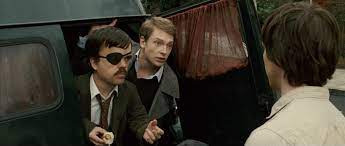
Lemon, Penelope (2006)
10/10
To me Lemon is a great example of naturally including someone with dwarfism in a film - he isn't belittled for his disability, and his roll feels very organic. He may not be the most likeable character, but he's taken seriously and goes through development throughout the film.

Ma Petite, American Horror Story (2011)
-10/10
Purchased for three cases of Dr. Pepper and treated as a doll by all member's of the circus, Ma Petite is an excellent example of dwarfism enslavement without revolt.
It was unsurprising in a season titled "Freak Show", in a genre with a history of horrifying and mystifying people with disabilities, but I really wished for better from a 21st century series - but then again AHS is crawling with problems when it comes to marginalized communities.
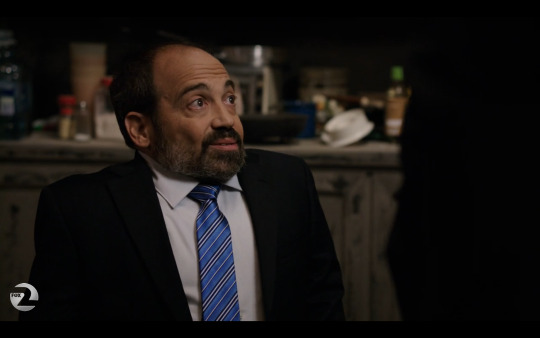
Alex Radziwill, Bones (2005-2017)
10/10
Alex is a character I find to often be forgotten, but he's probably one of my favorite characters with dwarfism to date.
The show gets a little iffy when the episode regarding "m*dget wrestling" comes around, but Alex is consistently respected in his field and by the main characters. His roll is minor but I loved seeing him naturally integrated into the world.

Mini Me, Austin Powers (1997-2002)
-100/10
First to be given this low a score, the character Mini Me is one I hate the most, not only for it's heinous representation but for it's staying power within pop culture.
He's an A+ example of pet culture within dwarf history. He is dehumanized and owned as property, abused, and made a mockery of constantly.
Not only that, but being that the Austin Powers series is so popular, the Mini Me character became a point of reference for many abled folk when it came to people with dwarfism.
This character nearly single-handedly influenced the way I was treated by my peers throughout childhood.
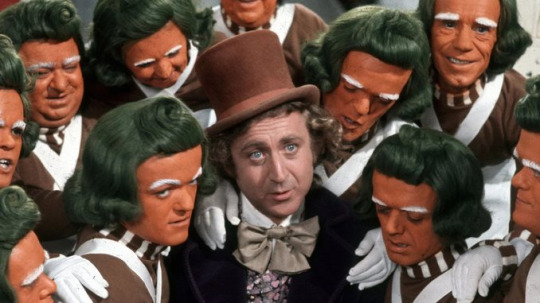

Oompa-Loompas, Charlie and the Chocolate Factory (1971, 2005)
-100/10
Like Austin Powers' Mini Me, the oompa-loompas of Charlie and the Chocolate Factory have had a major staying power in the world of dwarf representation. The popularity of these characters have been used as a tool for harassment in the real world - representation matters y'all.
The Oompa-Loompas are one denominational characters, owned and enslaved by Mr. Wonka under the guise of mutual benefit - a phenomenon not dissimilar to the "m*dget villages" and tiny towns of the 60s and 70s.

The Seven Dwarfs, Mirror Mirror (2012)
5/10
I have mixed views of this particular rendition, since despite it's terrible subject material (being the classic group of one dimensional and comical small men) it actually takes a refreshingly positive approach to the Seven Dwarfs.
In this version, members Grimm, Napoleon, Butcher, Wolfie, Chuck, Grubb, and Half Pint are all named after the rolls they filled in their village before being outcast by the queen ("banish the uglies" - she decreed). They are full characters with back stories and personalities, and play a far more crucial roll in this rendition. We even see them achieve their various life goals as the credits roll.
They did, however, require an act of heroism and Snow White's use of privilege to regain their place in society.
Overall it's easily my favorite reenactment, but the bar wasn't exactly high to begin with.

Marty, Pirates of the Caribbean (2003-2017)
3/10
The anarchist in me absolutely loved seeing a little person as a member of a rebel pirate crew, but overall I don't have strong feelings any which way about this particular character, which is disappointing.
Aside from being not overly interesting, the most memorable scene from Marty is when he gets knocked back after firing a small canon - which was obviously a joke at his stature
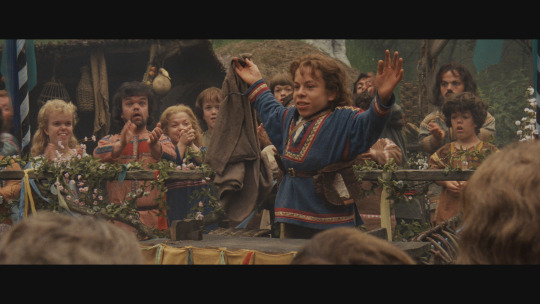
Willow, Willow (1988)
11/10
I've spoken about this film before, but I honestly can't boost it enough. It has a huge Little cast, and was able to truly humanize it's village of little people in such a wholesome and human way which I absolutely loved.
Willow's is that of a hero's journey - he embarks on a grand quest despite the doubts of his peers and succeeds! He has a wife and children and a roll in his community, just overall a wonderfully lovable character.
I hope to do a part two soon since this just scratches the surface of Little rolls, so if you have any characters you'd like me to review please send them my way!!
-Elliot (they/them)
#dwarfism in film#dwarfism in media#dwarfism awareness#disability#disability representation#representation#dwarfism#little people#disability awareness#social justice
360 notes
·
View notes
Text
Yo here's my essay I wrote about mental illnesses/disabilities being portrayed in media, if any of y'all wanted to read it. It's around 1500 words, so it's a bit to read. I got a 98 on this though so I'm kinda proud
With so many people advocating for their disabilities online, why is it that other people, people without these disabilities, want to police how someone’s disability makes them disabled? Not to mention, people online tend to only post the “quirky” part of their disorders, leading people to believe they either want to have a friend with their disability or that they themselves want/ have that disability when they do not. Sometimes they also end up adding more stigmatization to already demonized disorders, such as Cluster B disorders (Narcissistic Personality Disorder (NPD) Borderline Personality Disorder (BPD), etc.). While some people do a great job of advocating for themselves, people need to see both the “quirky” and the serious side of a disorder in order to truly understand the disorder they are idolizing/ demonizing.
One of the bigger issues with only “quirky” symptoms being shown online is that people end up idolizing the disorder shown, either wanting a friend with the disorder or they want to have the disorder themselves. This has led to the rise of people faking serious disorders online, either because they see the attention people with the actual disorder are getting, or because they just truly believe they have a disorder they do not because they only see “quirky” symptoms and they end up pathologizing these symptoms to suit them, often times to negative effects for themselves and the people around them. As a result, many people tend to worry that people putting themselves online with a disorder, with either serious or “silly” symptoms, are faking it for attention to spread misinformation. A good example of this could be the Tik-Toker known as Tics and Roses. She has become very well known for faking an illness to gain sympathy and to sell more of her stuff from her yarn business, going as far as to film herself “ticcing” while packaging her orders to get more orders. This has made people think that anyone that has tics is now lying or calling them a grifter. However, all this does is make people less likely to show more serious symptoms of their disorder, thinking they will be called fake for exposing the serious side of their disorder. Another issue is that if they do not convince themselves they have the disorder, they want a friend that has the disorder, much like “having a gay friend,” which was a big thing a couple of years ago, and still is now. I know when I mention that I have ADHD or tics, people have said to me “Oh I’ve always wanted a friend that has that” or “oh I wish I had that” which is extremely weird to say to someone with a disability. I once had a friend that purposefully triggered my “cute” tics to get a good laugh and go “oh you’re so cute,” not knowing how it affects me. This is because people mainly see “cute” tics on social media and believe that those are the only symptoms that a person can have, causing people to hide parts of themselves in order to not be treated like a zoo animal. However, by showing other, more serious symptoms online, it can help people be more open about their disorders. Even worse, people want a friend with a disorder or disability until it starts affecting their friendship or just affecting their friends. For me, I can tell when people get a bit uncomfortable when uncommon or “serious” symptoms occur, such as rejection sensitive dysphoria (RSD) or emotional dysregulation. Many people just tend to think “your disability/disorder is fine until you show symptoms.” Overall, people convincing themselves they have the disorder or that they want a friend that has a disorder/disability ends up hurting people with the disorder/disability in the long run because it makes us feel as though we are just an object to entertain or to be a diversity friend.
Another big issue is with people that are convinced they know a lot about a disorder they do not have because they have watched enough videos about people that do have that disorder. This results in them giving unsolicited advice about how they think the issue could be fixed. While some people may appreciate the sentiment, most people with that disability have heard this advice several times before. I can assure you that we have tried whatever you are telling us to try. For example, people with ADHD, like me, are often told to “just get a planner.” While people telling us this do not mean any harm, they may not know that we have tried those multiple times. I can tell you that every time I get a planner to make sure I don’t forget things, guess what I forget. That’s right, the planner. Another good example of this can be telling chronically ill people “Well have you tried yoga? That helps me sometimes” While you may think you are helping, remember they deal with this every day of their life, where you probably only deal with it for a month at most. You do not have the experience to tell people how to help their disability, one you do not have. Another example is “autism moms,” the mothers of kids who have autism. They insist on making all of their kid’s autistic struggles about them and talking over their autistic child, even if their child can speak up for themselves or is an adult. Some of them go as far as to say to give their kids bleach in order to “get rid” of their autism. Overall, people without a disorder seem to believe that they know everything about a disorder from a very small amount of info they have seen, which is normally a “sillier” side of the illness and insist on speaking over people with the real disorders, causing harm to these already marginalized communities.
While showing more serious sides of a mental illness or disability can help break stereotypes, it can sometimes further demonize certain mental illnesses. An example of this can be with Cluster B disorders (BPD, NPD, etc.). These disorders are already heavily stigmatized and demonized. With NPD, they have a whole other term, narcissistic abuse (Which is just thrown around when the person is just being a jerk). And with BPD, when people share awareness people will purposefully start hating them based off a stereotype of these people being dangerous. This causes unnecessary hateful comments and people purposefully triggering them, causing them to lash out (a symptom of their disorder), so they can turn around and go “see, this person is bad because they just ‘randomly’ started yelling at me” which isn’t the full truth and furthers the demonization of people with these disorders. However, these people are just a small amount in the overall online world. It is understandable that seeing this happen to some online advocates may make others less likely to share their serious symptoms. But I believe that we should still share them even if some people are rude about it. Plus, people also will hate you for only sharing positive symptoms as well, calling you a poser or a fake, so if they are already mad, why should you care what they think.
I believe that we should share more serious symptoms of our disorders, no matter how well known or stigmatized they are. This can help combat the amount of people that wish they had the disorder just because they think it would be fun, and could help people understand the nuances of this disorder as well, so if they have a friend with it, just by chance, rather than looking for a friend with a disorder, they can be more accepting that this is just a symptom as opposed to a failing in being a friend or some other reason. It can show people that insist on speaking about what could help that we have tried that and that we know more about our disorder than they do, as well as showing why that advice does not work. Plus, it can help demonized disorders that already show some negative affects also feel less alone, showing that every disorder has a “bad side” and that we are a community instead of each kind of group fending for themselves. It can help show that while some disorders have “silly” symptoms, it is still a serious disorder. I hope to see people being able to show their whole disorder in order to help one another out and help spread better awareness than we have now.
#actually mentally ill#actually tourettic#mental illness#i mean its a bit long#its almost 1500 words#crompson's real life#i think that counts
12 notes
·
View notes
Text
I’m not sure if this is something anyone else has picked up on, but after watching reactions to Itsuomi’s confession to Yuki, a lot of people got confused as to why she kept asking why Itsuomi even wanted to date her. I want to offer my two cents, but please note that there’s a degree of projection in my opinion, so maybe y'all will have a different viewpoint. As another disclaimer, I haven’t read the manga (yet!!), so my assessment of the characters is based on episodes 1-9 of the anime.
Yuki, for the most part, is a somewhat self-assured character. She’s a little insecure, but she also isn’t afraid to take chances on developing her relationship with Itsuomi. But she has also never experienced a romantic relationship with anyone. On top of that, she has grown up only being able to talk to very few people. One of the only people she could talk to, Oushi, has only used sign language to be mean to her. Sure, maybe on the outside it doesn’t get to her. But if you hear negative thoughts over and over throughout your life, it can influence you subtly.
If you’ll indulge me for a moment, I’d like to share my experiences briefly so that hopefully my viewpoints on Yuki’s behaviour makes sense. I myself am disabled. I’m not deaf, but I am mentally and physically disabled. As it stands right now, I feel I am growing to accept myself more and I’m working on treating myself with more kindness. However, when I think about someone liking me romantically, my biggest fear is that they won’t be able to tolerate my disabilities. It affects my communication, my independence, my tolerance for activity, among other things. In my mind, there are so many better and easier options than me. Even before I watched this anime, I always imagined that if someone I liked confessed to me, I’d be compelled to ask them why, not because I doubted the person being genuine, but because I am clouded by my own negative self-perception.
Going back to Yuki, I can totally see her having a similar line of thought. She views Itsuomi as someone who is popular; she even makes a comment about how anyone would fall for him if they were treated the way he treated her, since she assumed his treatment of her wasn’t special. She also, multiple times, becomes insecure about his relationship with Emma, despite being assured by multiple people (including Itsuomi) that they aren’t romantically involved. And despite doing so much that would indicate his affection for Yuki - the gentle way he talks to her, the fact he repeatedly wraps his arm around her, pats her head, smiles at her (despite being an otherwise inexpressive person) and literally kisses her hand - she still doesn’t realise that maybe her feelings are reciprocated. Why? Because of her own self-doubt.
When she asks Itsuomi why he wants to date her, I don’t think she is confused by what he means. I think there’s a part of her that can’t believe why, out of everyone he has met, he would choose her specifically. She needed Itsuomi to convince her that he genuinely wanted to be with her. Even after they start dating, she still needs to clarify with Rin that it’s okay for her to call him her boyfriend. These things are perhaps givens, but she is an anxious person by nature, so of course she struggles a little to understand the ‘rules’ of being in a relationship are.
Anyways uhh, thanks for reading this ramble! Let me know what y'all think. There’s a chance this won’t be the last post about A Sign of Affection that I make. I want to talk about my thoughts on Itsuomi (and maybe Oushi) in more depth at some point, but I’d like to catch up on the manga first.
#yuki itose#itose yuki#itsuomi nagi#nagi itsuomi#itsuomi x yuki#yuki x itsuomi#a sign of affection#yubisaki to renren#anime#long post#nagichi talks
18 notes
·
View notes
Text
i'm begging transformers writers to do something interesting with the fact that cybertronians are able to have altmodes that are just objects....
give me cybertronians whose altmodes are literally disability aids. like imagine the level of trust between two individuals; one who is disabled, maybe they their legs don't work or maybe their back struts have decayed to the point that they cannot be replace and having a cybertronian with a wheelchair or cane altmode assigned to them so that they can live a normal life without being shoved away to the fringes of society to rot. imagine having your conjunx endura or amica endure being the one to help you walk around or get to the store to buy groceries for the two of you, how much you trust them to keep you upright while they in turn trust you not to treat them like an object.
imagine cybertronians who can turn into listening devices or recorders to sit in on lectures or classrooms so that their friend with audial problems can listen back and get their notes in one time. imagine a cybertronian whose optics started to malfunction or whose just didn't work at all upon first coming into existance and having a friend or partner who can turn into a mobility cane to help them traverse the world. give me cybertronians who have really awful chronic joint pain because they've been alive so long that their parts can no longer be replaced who spend their time being taken care of because the world they live in deemed them existing enough to deserve being taken care of.
imagine cybertronians who've domesticated species of turbofoxes or other native wildlife and train them to be service animals, or herding animals, or hell just fucking pets.
imagine a version of prewar cybertron that integrated its disabled or otherwise unable to work citizens into their loving fold and simply accepted them for who they are.
i'm sick and tired of seeing the headcanons that cybertronians cannot be physically disabled or that the disabled don't exist on their planet because they're machines and can therefore just be fixed. that's boring, it's stupid and it's highly uncreative. transformers is a beautiful piece of media that should be able to incorporate as many people into it's worldbuilding as it can. i. want. more. disabled. cybertronians.
in fact i want more prewar worldbuilding in general. we know painfully little about what cybertron was like before the war and even my babygirl idw 2005 covers it to such a little extent that i'm going to spend the rest of this post complaining about it.
i want more cybertronians with hobbies not related to their altmodes. give me more examples of whirl's clockmaking or cyclonus' singing or swerve's bartending. i want cybertronians whose altmodes are science based spending their weekends hiking up in the mountains, simply taking in the beauty of their planets. i want cybertronians with racing altmodes sitting down and doing yoga in the part because they just need time to slow down. i want cybertronians with radio or communications altmodes/jobs who have hobbies like baking or reading or painting. the reason why so many of these characters feel so dry to me (i'm looking at you transformers prime) is because none of them have things to do outside of the war, not a single goddamn one.
i wanna know more about prewar culture too. i want to know all of the cities of cybertron and how their regional dialects formed. i want to know all the grammatical differences between conjugating a verb in kaonian and icaonian. or the way that northern area of tarn has a distinct accent from the southern. i want vosian accents to be described as elegent or rugged or cruel or how the way they form their glyphs has fundimentally changed the way their vocalizers produce sounds. give me radio stations that broadcast across cybertron with all the latest hits from popular singers. give me movies that get made in helex and then translated into iaconian and then further adapted for vosians.
i want a whole book full of the different ways to make things like energon candies or how to reduce different metals down to be consumed. give me a cybertronian, that before the war, was a cook and how they tried desperately to write down all the recipes in their brain module less that one recipe for sweet honey engex that their deceased conjunx taught them how to make be lost to the waves of forgotten history. give me a frantic archivist scrambling through the ruins of a kaonian library because they know its the only thing left of their family's once rich culture. give me a cybertronian whose job it is to help develop new structures, to design and instruct construction bots on where and when to build homes or libraries or restaurants.
i want a damn lore bible that goes into excruciating depths on how cybertron created and designed their cites, their roads, and their whole lives. i want that thing filled with the ways that families can be formed and how siblings and friends and conjunxes and amica come into existence and how all the cities of cybertron have slightly varied rituals for how those bonds are formed.
i'm so tired of the focus getting put on the war. i want to know the ways that this culture formed, how it grew, how it developed into the breeding ground for the unrest that led to the war. i don't care about megatron and optimus, i care about the cybertronians who came before them, who paved the streets that they walked on, who first spoke the languages that roll off their glossa and get inscribed onto their datapads. give a comic series or animated show that simply shows the day to day lives of various cybertronians before the planet went to hell. and if the writers are so damned insistant on retelling the same damn story again and again than fucking give me characters reminiscing or mourning the fall of their homes, their cultures, friends, family, lovers who all died. give me characters who tell their humans friends all about the sports they used to play, the movies or plays they used to attend, the boring homework they got assigned by their teacher or the bakery just down the street from their houses.
give me a cybertron that's bustling with life and culture. give a cybertron that feels alive
#transformers#icy writes#long post#worldbuilding thoughts#i'm very tired of seeing the same old war story play out#i want to know what cybertron was like before the war#it pains the historian/writer in my soul that things like this will likely never get expanded upon
28 notes
·
View notes
Note
thank you so much for talking about sparklecare's ableism. ive always had issues w the comic (the aus as well) for the terrible portrayal of physical disabilities and you made me feel really seen.
- another physically disabled, chronically ill person
Sorry anon, taking this whole ask as a chance to explain why. I do appreciate it, though.
I see almost all media as somewhat political because it often comes from the politics of the author. It comes through in choices that might not even seem to matter to most- like Alice killing Dr. Bumby in Alice: Madness Returns. It was intended to be McGee's own moment of catharsis and to make sure he wouldn't come back in the story. He, as someone who has experienced abuse, got catharsis from killing a fictional abuser but he is also fully aware that most abusers never face consequences for their actions. The game is about trauma, abuse, and how abuse is perpetuated by many people who have power in different ways. That game altered me so severely with one line that it had sown the seeds for turning me punk: "Who benefits from your madness?"
I've been slowly trying to work through Lolita because I come through it from the angle that Dolores Haze's story is silenced by Humbert Humbert's. Vladimir Nobokov claims that it means nothing, but has also likened it to the idea of a caged animal creating art of the cage that surrounds it. He knows Humbert Humbert is a predator and has always stated that. He saw a problem with the world and wanted to talk about it.
Terry Pratchett's Discworld is social commentary all the way down and the man took pot shots at JKR for her bad queer representation with Dumbledore and the house elves heads on the wall. JKR's writing of Harry Potter is inseparable from her politics because there is no systemic change. She mocks the character who sees slavery as bad and wants to provide systemic change. The blood racism house is never changed or removed after it literally leading to wizard fascism more than once.
Fictional media is fundamentally how people parse the world around them and get to understand it, which is why critique and analysis are so important. This is not to say "Problematic media should never be interacted with and anyone who likes x is inherently bad" but instead "Know when your favorite media is being bigoted and how."
I'm no stranger to being so abused and unheard that your outlet is fiction as a cry for people to listen to you. I was going to make a twine game about my own child abuse and sleep deprivation hallucinations that I dealt with before I even was a teenager. I wrote about a dog wanting to kill itself. I wrote about being so devoted to someone you would let them kill you. I had things to say that were unheard because of how abuse victims and children are never listened to. In shorter terms- Fictional media is extremely powerful and there's a big ass reason why Atlas Shrugged is not only political theory but also fiction.
Sparklecare is important because it clearly is not merely vent media. It has things to say. Kittycorn can say it is vent media all kit wants, but it went from being called a social commentary to being called a vent piece and criticism of healthcare systems because of me pointing out the issues within it and treating the comic as it wants to be treated. Kittycorn has things to say and uses claims that it is only vent media to protect kits actual views from critique.
Being a creative exposes how you see the world in a very personal way, even if it is not directly a social commentary at all. What you create, how you create it, and what the audience is are all ways that you can get a glimpse at who the creator is and what they believe. The audience for Sparklecare is people who have not been institutionalized or hospitalized so they can understand kits experiences. It is done in episodes online and often uses drawn gore and strong visuals to try to get its point across without giving people a moment to digest what happened and reflect on it. Dissecting media is super important to creatives because it means people understand the messages we want to say.
Using an example from music- the song Dirty Harry by Gorillaz is anti-war. But people don't really seem to care all that much. If you pay attention, it criticizes how soldiers are pawns to the powerful and ultimately expendable to the people at the head of the conflict while the soldiers suffer as a result. It talks about the fear after 9/11. From books- Animal Farm is not anti-socialism. Orwell was a socialist who fought fascists.
Creatives need critics and analysis in order to help understand ourselves and how others view the content we make. It's a part of a healthy creative ecosystem. The response to Sparklecare's ableism being pointed out being absolute shutdown from the fanbase and meltdowns from the creator is indicative of an unhealthy fanbase that functions with little thinking about the media and what it is saying.
From the text, I can tell that Kittycorn has little experience with physical disability based on the ableism seen in the comic and the writing of physical disabilities barely having any impact on the characters, as well as the fact that she is using a general hospital in place of her experiences in a psychiatric hospital as if they are the same. I could tell no one involved is active with disability advocacy or justice because of writing all nurses as good when in reality nurses hold power over their patients and that can harm us through neglect and abuse, not just doctors. Nurses are a part in systemic ableism. In order for the comic to not continue ableist rhetoric, Kittycorn needs to confront things from a systemic issue point of view and not "Greedy capitalist bad" view which is reductionist.
Kittycorn wants to inspire others with her story- a noble aim, sure, if a little idealistic. But how it (Sparklecare) is going about doing so is harmful to the people kit wants to advocate for.
8 notes
·
View notes